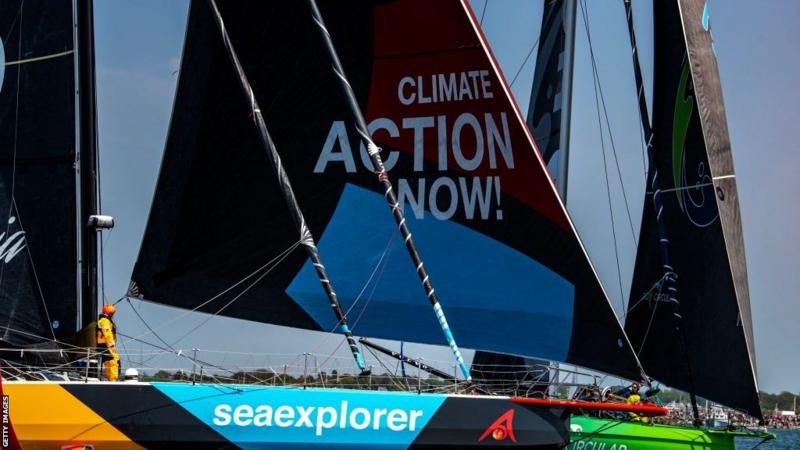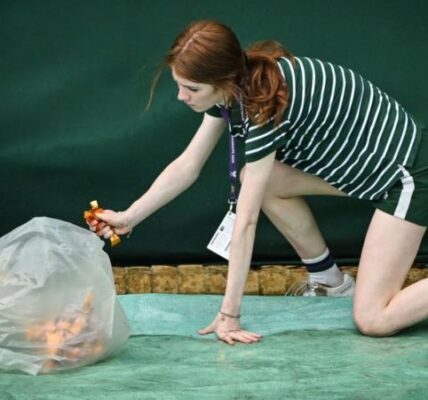“Like a pirate, I had to jump over the side of the boat with a knife.” We had ropes, fishing nets, and rubbish wrapped around the hydrofoils.”
Will Harris is a British sailor racing for Team Malizia in The Ocean Race, which concludes this week in Genoa, Italy, after a 60,000-kilometer round of the globe.
The teams have paired navigating one of the world’s longest and most difficult professional athletic events with contributing to climate impact studies.
The boats are collecting data on plastic pollution, rising ocean temperatures, and the levels of carbon dioxide and salt in the waters.
“This garbage has probably been in the ocean for 40 or 50 years,” Harris says. “They end up being a mix of rope, non-degradable plastic, and sea life that has tried to grow on it.”
“Imagine what it will be like in 300 years.” It’s both terrifying and eye-opening.”
The amount of plastic found in the ocean is increasing, with some locations experiencing a 20% increase since the previous race in 2018.
Plastic is just one of the mounting environmental consequences on our waters noticed by Harris and the five competing teams.
“I’ve seen things like sargassum seaweed clogging up the Caribbean,” Harris continues. “We’ve seen less and less wildlife in particular, such as birds in the ocean, and storms at sea are becoming more intense.”
“So it’s interesting that even in the few years I’ve been racing, we’re already seeing changes.” And it’s not always for the better.”
Ocean temperatures are rising as a result of global warming, with new highs already set this year.
The North Atlantic Ocean, which surrounds the United Kingdom, has experienced some of the most extreme marine heat increases on Earth.
Oceans and seas cover 70% of the earth’s surface, absorb more than 90% of solar heat, and power weather systems, thus the warming effect is far-reaching.
Dr. Marilena Oltmanns, an ocean and climate specialist at the National Oceanography Centre, told the BBC that the rise in ocean temperatures was “unprecedented” and “very alarming.”
The distance sailed in The Ocean Race has expanded by 30% in the last decade, with an exclusion zone surrounding Antarctica being moved 1,000 miles north due to melting ice and the risk of icebergs.
“There are lots of stories now about huge icebergs ending up on South Georgia Island [in the South Atlantic Ocean], and they’re potentially going to wipe out some pretty critical wildlife spots,” Harris adds.
“The larger this ice exclusion zone becomes, the longer our race course becomes because we must sail further around Antarctica.”




